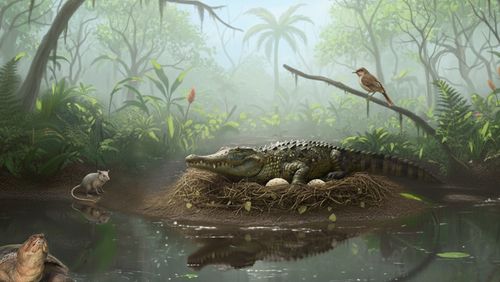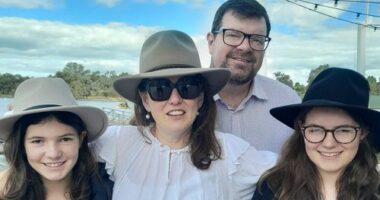Share this @internewscast.com
Australian researchers have unearthed the continent’s most ancient crocodile eggshells, suggesting that these prehistoric reptiles might have once scaled trees in pursuit of their prey.
An international team, including palaeontologists from the University of New South Wales (UNSW), discovered these fossilized remnants in the garden of a grazier in Murgon, a quaint Queensland town located roughly 247 kilometers northwest of Brisbane.
The fossils provide insights into mekosuchine crocodiles that inhabited Australia approximately 55 million years ago.

In stark contrast, the saltwater and freshwater crocodiles familiar to us today only made their way to Australia about 3.8 million years ago.
This particular mekosuchine species identified in Queensland has been named Wakkaoolithus godthelpi, and experts describe them as significantly different from their modern counterparts.
UNSW palaeontologist Professor Michael Archer remarked, “It’s fascinating to consider, but some of these creatures seemed to have been land-based predators in the forests.”
“Some were also apparently at least partly semi-arboreal ‘drop crocs’.
“They were perhaps hunting like leopards, dropping out of trees on any unsuspecting thing they fancied for dinner.”

The latest discovery is not the only mekosuchine to be found in Queensland, with fossils estimated to be 25 million years old found in the Boodjamulla National Park in north-western Queensland.
Archer said the findings revealed the ancient crocodiles could have reached huge sizes, up to five metres long.
Modern crocodiles found in Australia are usually around four metres long if they are male, or three metres long if they are female.











